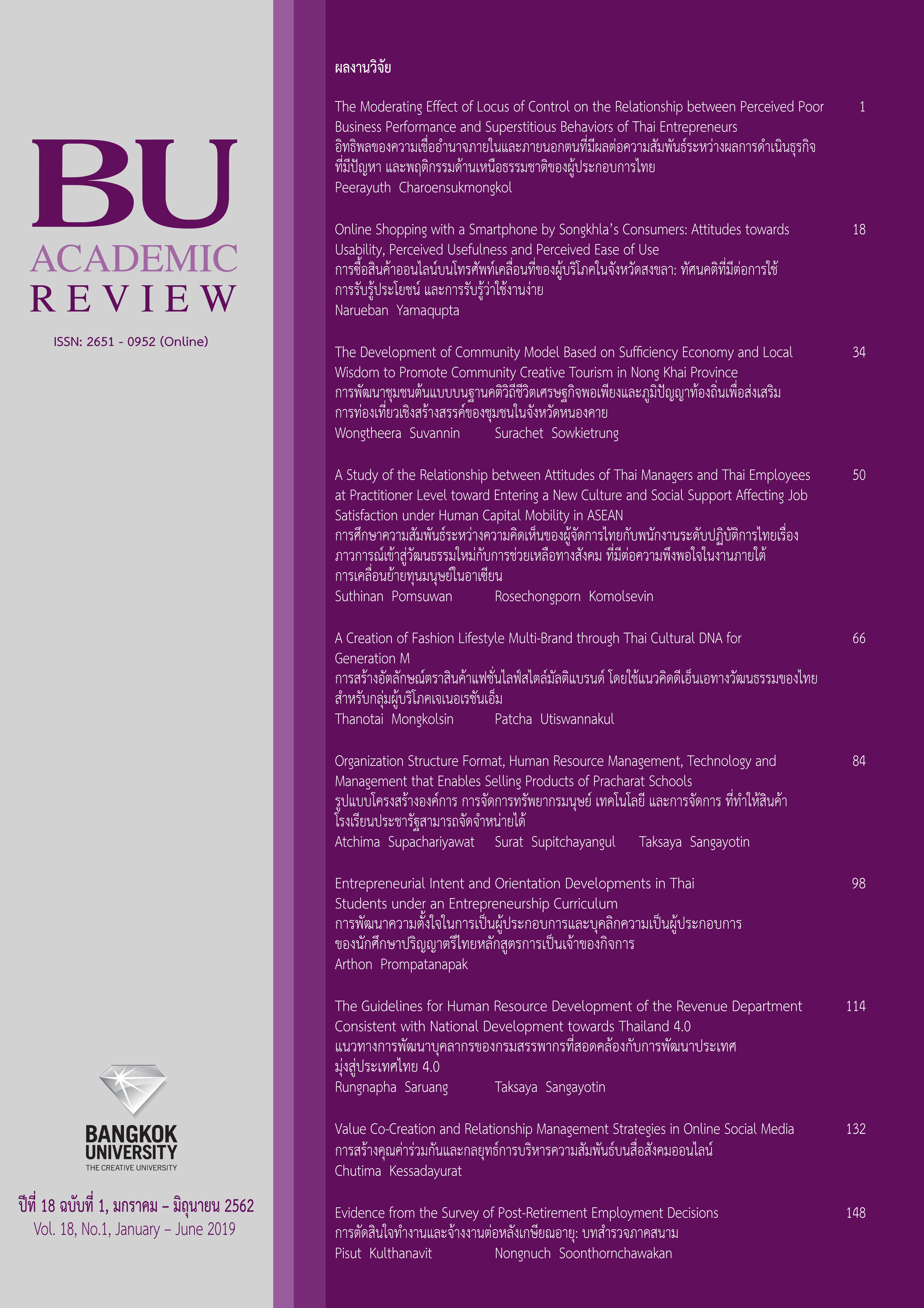A Study of the Relationship between Attitudes of Thai Managers and Thai Employees at Practitioner Level toward Entering a New Culture and Social Support Affecting Job Satisfaction under Human Capital Mobility in ASEAN
Main Article Content
Abstract
This research aims to study the attitudes toward entering a new culture and social support affecting job satisfaction under human capital mobility in ASEAN among supervisory employees and employees at practitioner level, as well as to explore the differences in the said attitudes between supervisory employees and employees at practitioner level. A close-ended questionnaire was used for data collection while Cronbach's Alpha Analysis test was used in evaluating reliability of the questionnaire, and the reliability value was 0.887. Questionnaires were distributed to a sample of 400 respondents including supervisory employees and employees at practitioner level of selected multinational companies. With the statistical significance level of 0.05, the study results are as follows: Attitudes toward entering a new culture and social support of supervisory employees and of employees at practitioner level have an influence on attitudes toward job satisfaction under human capital mobility in ASEAN. Different attitudes toward social support between supervisory employees and practitioner-level employees have different effects on their attitudes toward job satisfaction under human capital mobility in ASEAN. Different attitudes toward entering a new culture and social support between male and female supervisory employees have different effects on attitudes toward job satisfaction under human capital mobility in ASEAN. However, the said effect was not found between male and female employees at practitioner level.
Article Details
The manuscript submitted for publication must be the original version, submitted only to this particular journal with no prior acceptance for publication elsewhere in other academic journals. The manuscript must also not violate the copyright issue by means of plagiarism.

